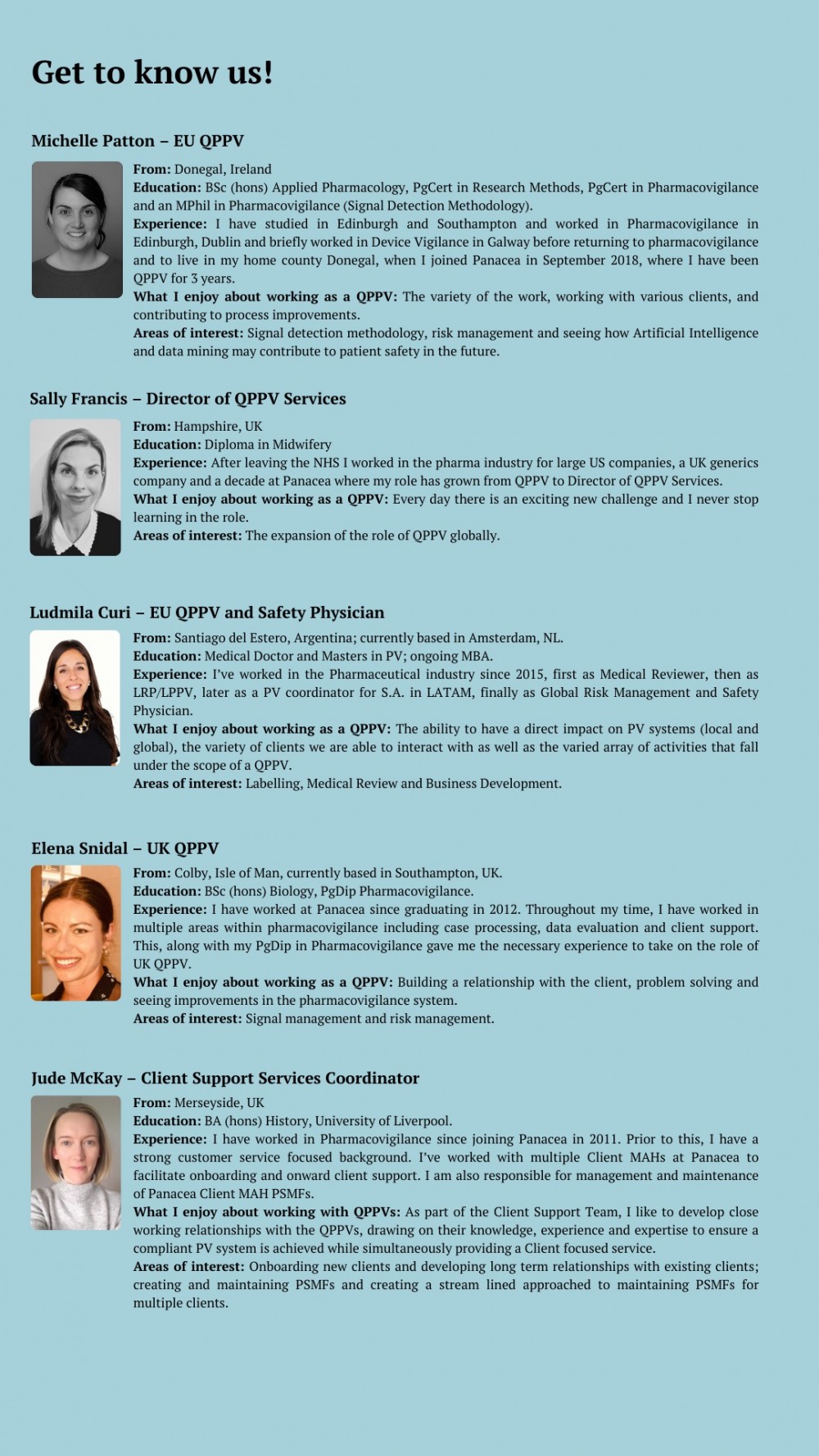


As part of the pharmacovigilance system, the marketing authorisation holder shall have permanently and continuously at its disposal an appropriately qualified person responsible for pharmacovigilance in the EU (QPPV) [DIR Art 104(3)(a)]. Each pharmacovigilance system can have only one QPPV. A QPPV may be employed by more than one marketing authorisation holder, for a shared or for separate pharmacovigilance systems or may fulfil the role of QPPV for more than one pharmacovigilance system of the same marketing authorisation holder, provided that the QPPV is able to fulfil all obligations. In addition to the QPPV, competent authorities in Member States are legally provided with the option to request the nomination of a pharmacovigilance contact person at national level reporting to the QPPV. Reporting in this context relates to pharmacovigilance tasks and responsibilities and not necessarily to line management. A contact person at national level may also be nominated as the QPPV. The marketing authorisation holder shall ensure that the QPPV has sufficient authority to influence the performance of the quality system and the pharmacovigilance activities of the marketing authorisation holder [IR Art 10(2)]1.
While being an EU Qualified Person for Pharmacovigilance (QPPV) has always come with a level of responsibility as laid out in European Union (EU) legislation, advances in requirements for the nomination of pharmacovigilance (PhV) contact persons at a national level in EU territories, interaction with EX-EU territories, and Brexit, have all added to the complexity of maintaining QPPV oversight of a Marketing Authorisation Holder’s (MAH) PhV system. In order to maintain adequate oversight of a PhV system, is there truly an EU QPPV role anymore, or has it become a Global QPPV role?
With specific requirements for gaining and maintaining Marketing Authorisations (MAs) in EU territories (for example, the French Pharmacovigilance System Master File (PSMF) requirements, or the need for a unique United Kingdom (UK) PSMF number) there is an ever-increasing volume of documents to maintain in a PhV system. Many PhV systems interact with EX-EU territories, whether it be for distribution, supply or expansion, making it difficult to define where an EU QPPV’s responsibility for oversight ends, with many currently also acting as a UK QPPV, and/or a German Graduated Plan Officer.
As a QPPV within a consultancy company, there is often a need to maintain oversight of more than one MAH PhV system. This brings additional challenges, with multiple sets of procedures (tracked via a variety of systems), an assortment of adverse event databases, regulatory demands, the constant need for regulatory intelligence, the necessity to keep up with client MA changes, and advancing technology. In order to combat these challenges, Panacea have developed a detailed handover protocol for use when taking on a new PhV project. This protocol ensures open and honest communication as required during the set-up phase. When outsourcing QPPV roles, it may be necessary for Panacea to audit the client on behalf of the QPPV to gain a complete understanding and oversight of the current PhV system. Following Go-Live, there is always regular communication between the client and the QPPV and/or deputy, which is managed by a dedicated team member from Panacea’s client support team, who arrange regular and ad hoc minuted meetings and ensure monthly QPPV reports are circulated.
Within a PhV agreement and PSMF Annex A, there is clearly defined delegation by the QPPV from the beginning, whether this be to internal client MAH staff, or Panacea colleagues, the delegation of specific tasks, and methods for maintaining oversight is discussed, so that the QPPV feels confident in their role for the MAH.
The role of the deputy QPPV also has its challenges, however this role can prove vital when managing multiple client MAH PhV systems. Whether the deputy is an internal employee of the client MAH or also contracted out to Panacea, maintaining the PhV system is heavily reliant on the QPPV and deputy working as a team.
At Panacea, in addition to regular communications with the MAH staff and involvement of deputy QPPVs, there are also monthly QPPV Office meetings where all QPPVs and deputies meet to discuss issues and share learnings. This provides constant learning for each QPPV, in addition to support in real time. By outsourcing QPPV (and deputy) roles to Panacea, an MAH gets a team approach which includes experienced QPPVs, safety physicians, experts in case processing, data evaluation, quality management systems, audits, inspections and regulatory affairs. Whether additional services are also outsourced to Panacea, or not, the client can be assured that the QPPV has the support and advice of experts in each area should it be required, and the time and dedication to fulfil the role.
References:
